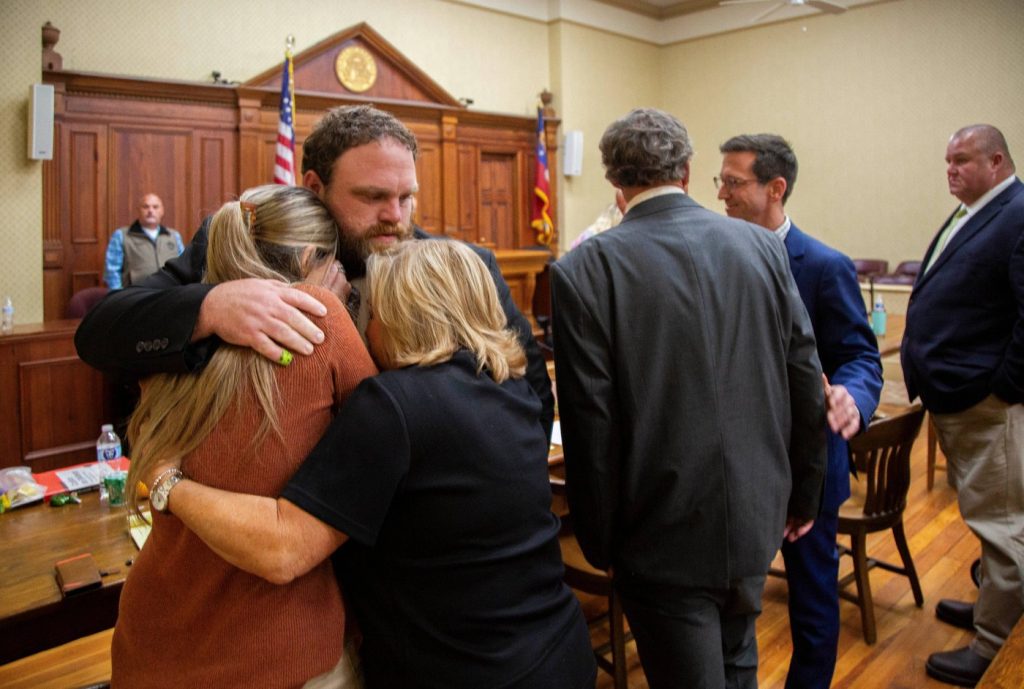A jury in Sandersville, Georgia, found three former sheriff's deputies not guilty of murder concerning the death of Eurie Martin, a 58-year-old Black man. Martin was stopped by the deputies in July 2017 while asking a white homeowner for a drink of water as he was walking through the small town of Deepstep. The deputies, Henry Lee Copeland, Michael Howell, and Rhett Scott, claimed that they stopped Martin because he was walking illegally in the road, had littered by dropping a soda can, and was aggressively refusing to comply with their commands.
This verdict concludes a lengthy legal battle spanning eight years and two trials. Late Thursday, the jury acquitted all three deputies of murder charges, as well as aggravated assault. However, jurors could not reach a unanimous decision on the charges of involuntary manslaughter and reckless conduct against Copeland and Howell, leading to a mistrial on those counts. Scott was acquitted on all charges. The previous trial in 2021 ended in a similar deadlock.
After the verdict, Karen Scott, Rhett's mother, expressed her joy over her son's acquittal, stating, "We’re elated." In contrast, Helen Gilbert, Martin’s sister, expressed her disappointment, voicing frustration at the drawn-out legal process and the impact on the Martin family.
It remains unclear whether prosecutors plan to retry Copeland and Howell on the unresolved charges from the recent trial. Meanwhile, attorney and civil rights activist Francys Johnson continues to pursue a federal lawsuit on behalf of Martin's family, emphasizing that Martin should have been able to walk home freely. Johnson stated, "As a free man in this country, he should have been able to walk home."
On the day of the incident in July 2017, Martin was enduring extreme heat while walking approximately 30 miles to visit relatives for his birthday. Testimony during the trial revealed that he was under severe stress from the heat, suffering from dehydration, and had a preexisting condition of a weakened heart. Furthermore, Martin had been treated for schizoaffective disorder, as noted by his family. The alert from Cyrus Harris Jr., the homeowner, indicated his suspicion based on Martin's appearance and actions. Harris described Martin as a "big guy" who looked unkempt and rough, recalling that he carried a half soda can when he approached and requested water.
Upon the deputies' arrival, they located Martin in the roadway. They claimed that he refused to stop walking, discarded the soda can, and assumed an aggressive posture, leading them to deploy Tasers. Video recordings from dash-cams and bystanders captured the situation, showing Martin being surrounded by the deputies while being repeatedly Tasered. According to reports, the deputies fired Taser shots at Martin at least 15 times, with electrical current being applied for roughly a minute and a half in total. A subsequent autopsy by a forensic specialist concluded that Martin's death was a homicide, and all three deputies were eventually terminated from their positions following the incident.
Throughout the trial, defense attorney Shawn Merzlak argued that the use of force was justified, stating that the deputies had a right to detain someone they suspected of committing a crime. Conversely, prosecutor George Lipscomb criticized this argument, questioning whether it was acceptable for individuals to be killed for minor offenses like littering or walking in the street.
The verdict has drawn widespread attention and raises ongoing concerns about police use of force, racial profiling, and the legal accountability of law enforcement officers in similar cases.











